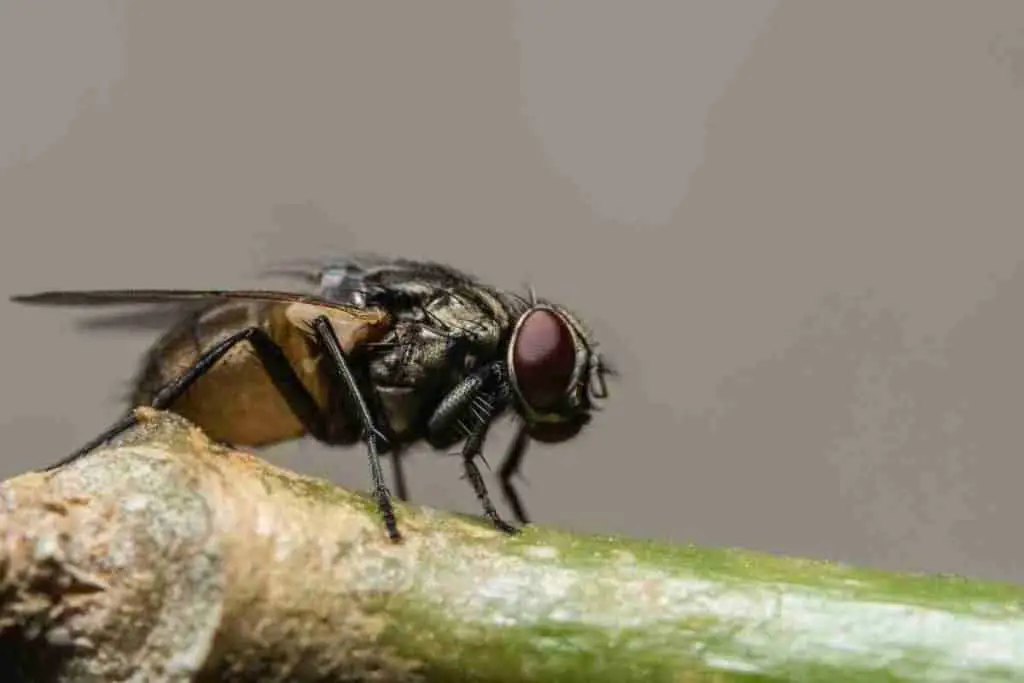Do Flies Fart? There’s no doubt that flies are pesky creatures. They seem to be everywhere, and they always seem to be swarming around your food. But did you know that these little critters can also produce some pretty rank smells?
Most people are familiar with the sights and smells of flatulence, but they may not be aware that flies are also capable of passing gas. In fact, scientists have found that flies produce methane gas as part of their digestive process.
While the jury is still out on whether or not flies actually “fart” in the traditional sense, there is no doubt that they release methane into the air.
However, there is a good amount of research that has been conducted on the flatulence of various insects, including flies.
So, what does the science say about fly farts?
So, Do Flies Fart?
Well, according to science the answer, is a resounding yes. Flies, like all insects, produce methane as part of their digestive process.
Methane and hydrogen is a by-product of the breakdown of organic matter in the flies’ gut, which is then expelled through the fly’s rectum, know as farts!
While we don’t know for sure if flies fart in the same way that humans or other mammals do, there is no doubt that they release methane gas into the environment.
Related Article:
Do They Fart While Flying?
There’s no easy way to say this “but” yes! flies do fart while they’re airborne. In fact, they fart quite frequently. The reason has to do with their diet. Flies consume a lot of rotting food, which is full of methane gas.
When they eat this gas, it gets trapped in their intestines and eventually gets expelled through their anus. So there is a good chance when the insect is flying it’s actually releasing methane gas into the air.
While we may not be thrilled about the idea of flies farting while flying, it is a natural part of their digestive process.
Does A Flies Fart Smell?
Though we may never know for sure, it’s unlikely that flies fart smell. Thankfully, even if they did, humans would never notice. Flies are incredibly small creatures, and their flatulence is probably proportionately tiny.
Furthermore, flies spend most of their time outdoors, so any odor would quickly dissipate in the open air. In contrast, human fart smell because our gas is trapped inside our bodies where it has a chance to build up.
So, even though we may never have a definitive answer to the question of whether or not flies fart smell, it’s probably best not to worry about it too much. After all, even if they do, it’s not like we’re ever going to know!

Is A Flies Fart Toxic?
Flies are everywhere, and they’re not exactly known for their cleanliness. So it’s no wonder that people sometimes wonder if a fly’s fart is actually toxic.
Fortunately, the answer is No! While flies do eat some pretty gross things, their digestive system is actually surprisingly efficient and can break down this food quickly.
As a result, their gastrointestinal tracts are very short, and the methane gas is expelled quickly. So rest assured, a fly’s fart is not going to kill you.
Does A Flies Fart Have Sound?
Have you ever wondered if you can hear a fly fart? The answer is no, you can’t. Since their abdomens are so small, the volume of gas that they produce is very low. Additionally, fly farts contain very little methane, which is the main component of human flatus.
Methane is a gas that is very good at absorbing sound waves, so it makes our farts much louder than they would be otherwise. Without methane, fly farts would be virtually silent.
So next time you see a fly buzzing around, rest assured that you won’t be able to hear it break wind.
Do All Insects Fart?
While we do know some insects fart, we don’t know if all insects do. However, it is likely that many insects that produce methane and hydrogen will produce gas “farts” as part of their digestive process.
However, there was a study in 1981 on a flying insect called “Lomamyia latipennis” that feed on termites and they found that the larvae of this species live in termite nests and use, farts, to stun termites.
So it’s possible that their digestive systems are able to convert this methane into a less harmful substance.
More research needs to be done in order to determine which insects fart and which don’t. Until then, we can only speculate about the flatulent habits of our six-legged friends.
Conclusion
Yes, flies do fart. In fact, they produce methane gas as part of their digestive process. This gas is expelled through the fly’s rectum and often accumulates in the fly’s abdomen. When the fly farts, this methane gas is released into the air.
While we may not be thrilled about the idea of flies farting while flying, it is a natural part of their digestive process. So next time you see a fly buzzing around your food, just remember that it might be carrying some pretty rank gas with it.
